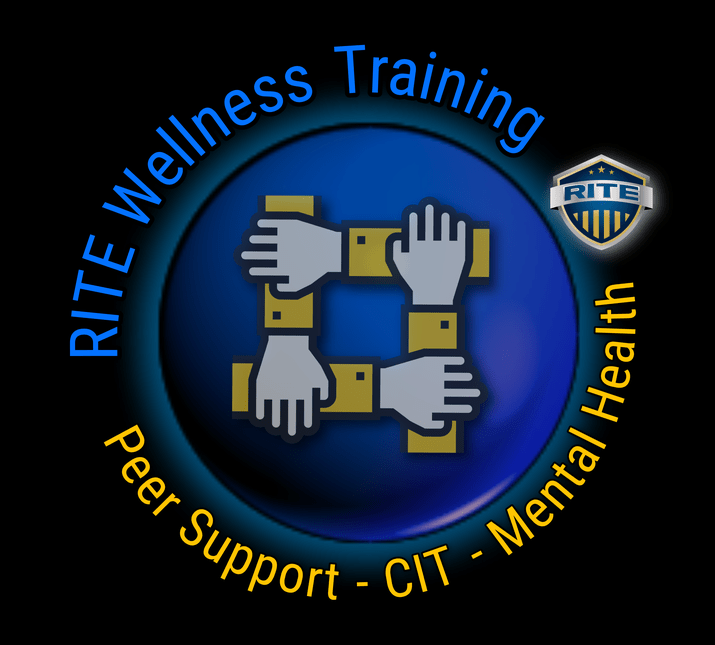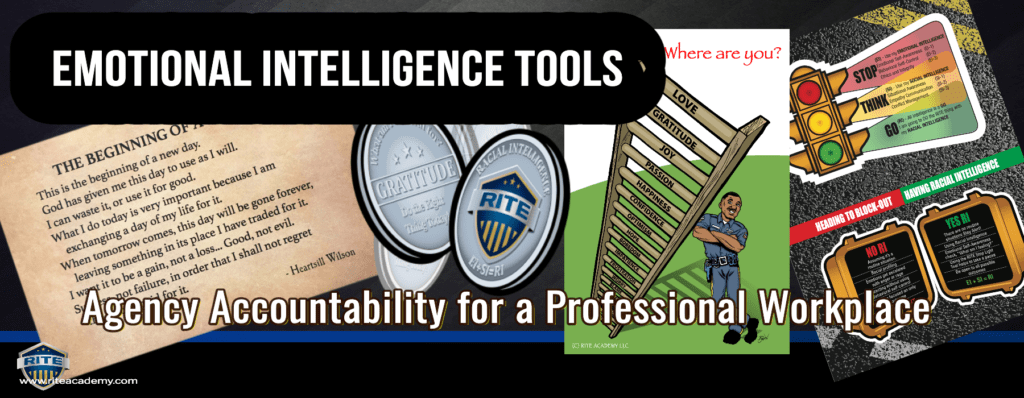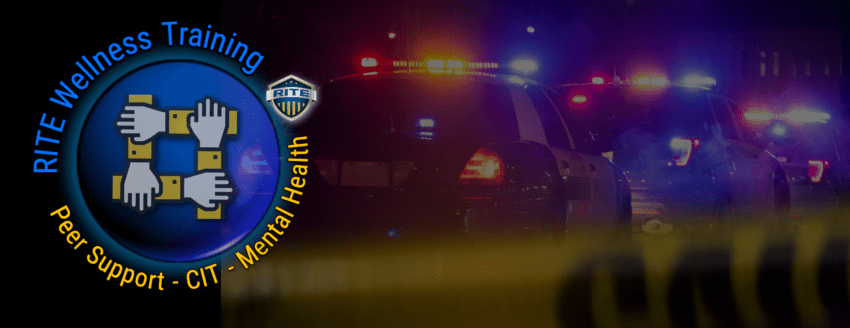If you have just one employee that needs Peer Support, then everyone in your agency needs to read this. We have yet to work with an agency, that didn’t need to improve their officer well-being programs.
Whether it’s Peer support, Crisis Intervention (CIT), a Mental health advisor, or a Chaplain, every public service professional needs to talk to someone, at some point.
Old Police Culture of Mental Health
The old school culture in law enforcement, was where stress or depression are not openly talked about, and more likely ‘brushed under the rug.’
Officers seeking outside help used to be seen as weak, so for the longest time getting in-house counseling was frowned upon. Today’s policing is changing with more health and wellness experts in and around the agency to help build an officer’s well-being.
Signs of needing a support professional:
- Always ramping up calls, unprofessional, disregards policy and procedures.
- Displays Toxic Behavior to other employees. Spreads rumors and gossip
- Not seeing the whole picture, lacks Situational Awareness
- Gets into Block-out (tunnel vision)
- Employee burn-out, non-productive, and disruptive
- Brings personal issues into work (divorce, financial stress, health issue, addiction)
Even with the increase of peer-based support groups and more awareness by leadership about mental health needs, work on mental health and wellness must continue.
Suicide rates and traumatic stress injuries continue to rise in law enforcement. It’s okay to ask for help.
When you witness an employee start to show signs of emotional unrest, it might be time to provide some assistance or a helping hand. A peer support group might just be the right solution to help that employee get back on track.
Peer Support is that Helping Hand:
Peer support programs started in the 1980’s and have been slowly growing. The Los Angeles Police Department was one of the first to start peer support in 1982. Through the years, these programs have gained momentum and show that when they are supported by the department, they can be very effective in providing that much needed helping hand.
If you are unaware of your inner anger, it can be hard to get help. Not everyone knows how to ask for help, even though the agency offers it.
Going through darkness emotionally can be the hardest thing to admit, yet everyone goes through rough patches in life at one time or two.
Most agencies now have (or need) either a Peer Support Group, Crisis Intervention Teams (CIT), Mental Health Advocates, and/or Chaplains, that support employees when they need it.

RITE provides agency support groups with advanced RITE communication Tools that can be an added element used with every employee in the agency
Helping Hand Tips:
- Providing a ‘Connection’ a lifeline to say… Are you ok?
- Have a peer to lean on – Walk in your shoes!
- Start the Awareness process for help – First Step in Healing!
- Boosts one’s morale (so they don’t leave, or do something they regret on the police call)
- Improve coping skills to handle future problems using RITE emotional intelligence tools.
By building a Peer Support Group… the message your agency is relaying to your employees… We Care About YOU and your well-being!
Employee well-being is your greatest asset. It provides employee retention, and longevity in the department, reducing misconduct, building morale, and establishing a stronger professional workplace culture.
Your peer support members can provide the resources and help immediately to the employee who may be in crisis.
Benefits of Peer Support Services
- Suicide Prevention, PTSD and CCTS Awareness
- One-on-one coaching
- Connecting people to resources and work
- Goal setting and improved focus
- Facilitating specific support groups (AA, addiction)
Having a Peer Support Group could be the lifeline someone may need before they do something drastic like, suicide.
No one will ever tell you, they are going to commit suicide!
When we ask every class, “Do you know someone who committed suicide?” Most hands go up.
Follow up question, “Did you know they were going to do it?” Every single time, the answers are all a somber, “No.”
We must do a better job to help our employees who may need just a little extra help.
Peer Support Success: (IACP Report)
- 90% or respondents who used peer support said it was helpful
- 80% indicated they would use peer support again if needed
- 90% indicated they would recommend it to a co-worker.
- 50% indicated it helped their job and homelife.
We have to change the stigma that needing mental health support . In the past, many public service employees would mask the need for help by saying the words, “I’m Fine!”
Peer Support reduces an Agencies Stigma for Needing Help:
- It NEEDS to Okay to not be Ok! – Normalizing help-seek behavior
- Strengthen coping skills – (4) Steps for Change (a RITE model)
- Suicide Awareness – Stopping ‘fight or flight’…. Ending one’s Life or Cause Misconduct in the Job.
- Opening Discussions to Mental Health Issues – Cumulative Career Trauma, and PTSD
- Recognizing Block-Out Syndrome before it happens
Choose employees that would be suitable members of your Peer Support Team.
Guide to Choosing Peer Support Members
- Not for personal gain, (i.e., to get promoted or looks good on the resume)
- Seek Recommendation from ranks – Identify employees who care about helping others
- Employees with Mental Health Backgrounds
- Employees who have received mental health themselves and are willing to talk about it. (Be true and vulnerable is key)
- Displays Altruism, the selfless concern for the well-being of others, while understanding the importance of boundaries.
Since 2015, RITE Academy has provided the useful and necessary tools and exercises to agency specialized support teams like:
- Peer Support Groups
- Crisis Intervention Team (CIT)
- Mental Health Advocates
- Chaplain
Your support teams can give employees their own self-help tools, guides, and exercises, that enables the employee to have an immediate way to start helping themselves get back on track.
No matter whether they are in their police cars, on a traumatic call, or going through something personally at home, you help them immediately with physical ‘Cognitive Imprint Tools’ that leave a lasting impression of hope.

RITE Academy Stats
- Trained over 1200 agencies on Officer Wellbeing and Improving the Workplace.
- Created over 950 RITE train-the-trainers
- Gave out more than 550,000 RITE Tools for employees
- Provided over 20 different individual exercises
- Provided hundreds of newsletters for agencies to give to their employees
- Helped agencies reduce their use-of-force incidents by 65%
- Educated local governments, state, and federal representative on public safety reform




